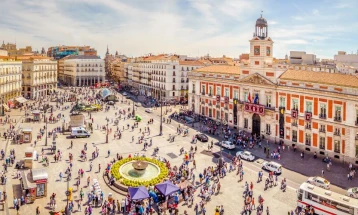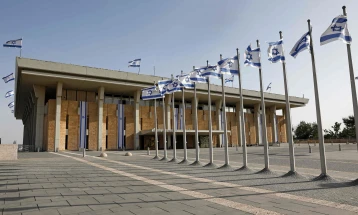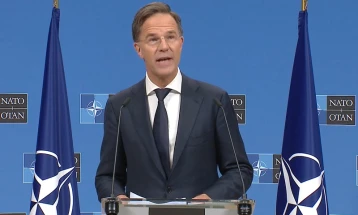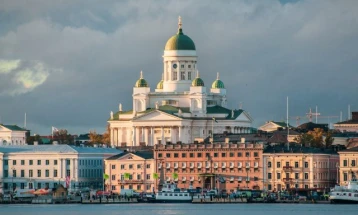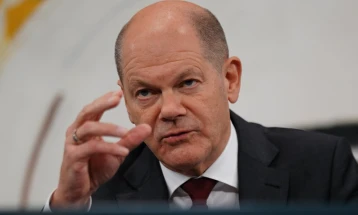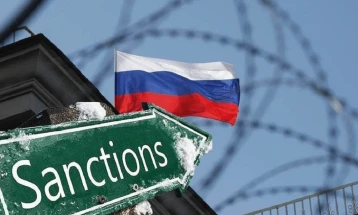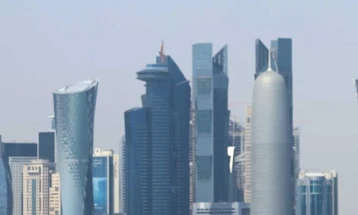Bangladeshi president to dissolve parliament, ex-prime minister freed
- Just hours after the Bangladeshi prime minister resigned and fled the country on Monday, the country's president said he would dissolve parliament and form an interim administration.
- Post By Magdalena Reed
- 08:32, 6 August, 2024
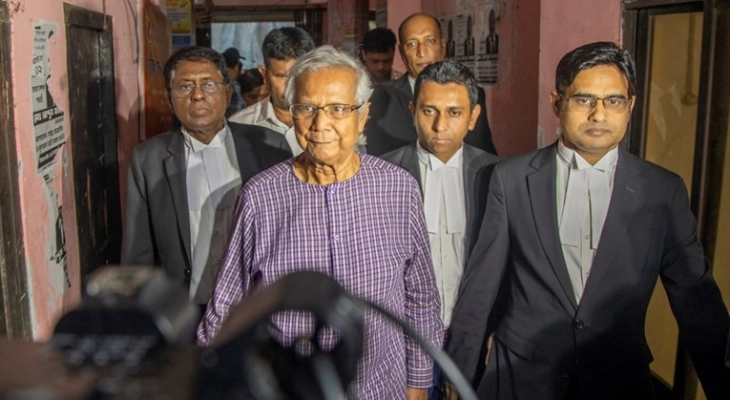
Dhaka, 6 August 2024 (dpa/MIA) — Just hours after the Bangladeshi prime minister resigned and fled the country on Monday, the country's president said he would dissolve parliament and form an interim administration.
The announcement from Mohammed Shahabuddin, in a televised address to the nation, came at the end of a tumultuous day in which former prime minister Sheikh Hasina quit and fled to India.
Weeks of violent student protests led to the toppling of Hasina's government on Monday, marking the end to her 15-year tenure. Around 300 people have been killed in the demonstrations.
Shahabuddin's decision came after a meeting on Monday night with opposition political leaders, who decided to release former prime minister Khaleda Zia, who was jailed in a 2018 graft case. The meeting also decided to free all prisoners detained during the anti-discrimination student movement.
Zaynal Abedin, the president's press officer, told state-run Bangladesh Sangbad Sangstha news agency that the meeting, attended by leaders from various opposition political parties, unanimously decided to release Zia.
Zia, who is the head of Bangladesh Nationalist Party (BNP) and an arch political rival of Hasina, was jailed over misappropriating funds meant for orphans. But she has been living at home in Dhaka after the government released her on humanitarian grounds in 2022 and suspended the prison term.
Meanwhile, the Bangladeshi army said it would lift a curfew, in place overnight, on Tuesday morning.
In a statement, the army said all government and private institutions will open from 6am (0000 GMT) on Tuesday.
Army chief Waker-Uz-Zamanhe called on protesting students to remain patient and refrain from further violence.
“Justice will be done for all those killings and atrocities. Please keep confidence in the army,” he urged.
Two coordinators of the Anti-Discrimination Student Movement said in a statement that power must be handed over to the interim government.
“We will not accept any other proposal,” said the statement, signed by Nahid Islam and Ashif Mahmud.
“The fascist killers will be punished in the land; they will not be allowed to flee,” it said, adding that every innocent civilian who was arrested and political prisoners will be freed.
Following the news of Hasina's resignation, protesters set fire to Awami League offices in Dhaka. Protesters seen dancing and chanting slogans against Hasina gathered at Dhaka University campus, the initial site of the protests against the controversial public job quota system.
Thousands of protesters stormed the prime minister's official residence, known as the Ganabhaban, in Dhaka after she had left the country.
In online footage, protesters can be seen looting items from the residence, swimming in the pool, and smoking cigarettes in the chambers of the members of parliament.
The authorities had already given in to the students' demands to reform an unpopular job quota system, after protests in mid-July left more than 200 people dead.
Since then, protesters have been asking the government to ensure justice for the victims of police atrocities, lift the curfew and reopen educational institutions.
Over the weekend, students escalated their demands and there were more violent clashes which reportedly led to about 100 more deaths, including 14 policemen.
Hasina has been criticized for being authoritarian by political opponents and international rights groups. But her supporters call her the daughter of democracy.
Along with her younger sister Sheikh Rehana, she escaped a brutal military coup in 1975 which saw her father Sheikh Mujibur Rahman and most of her family assassinated.
Returning from exile in 1981, Hasina assumed leadership of the Awami League party.
Under her guidance, the party played a pivotal role in the "anti-autocrat" movements against military dictator Hussain Muhammad Ershad in the 1980s.
In 1996, she became prime minister for the first time after her party secured victory in the parliamentary elections, marking the beginning of her leadership which lasted for five years.
Since then, her party has won several general elections, most recently in 2024. However, opposition groups alleged electoral fraud.
